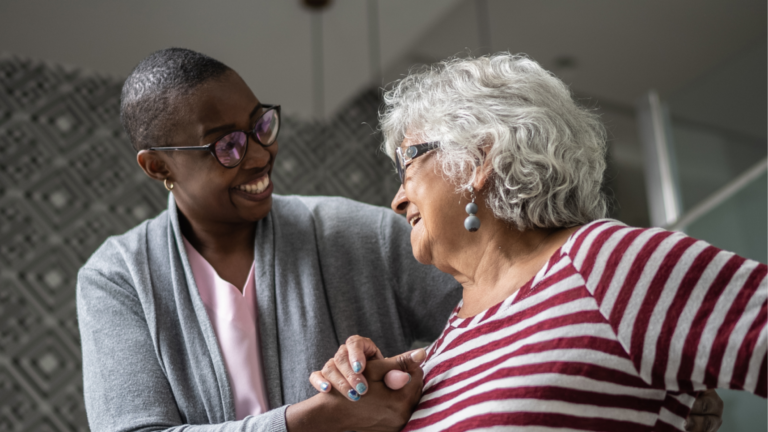
Community Comes First in Community Health
By Sabina Loscalzo
September 27-28 – the Unite Us team attended the American Health Insurance Plan’s (AHIP) National Conference on Medicaid. An event that brought together national policy experts, insurance plans, medicaid directors, and more to discuss the future of Medicaid and the opportunity that we have to transform our healthcare system. It was an incredibly informative experience to be a part of these forward thinking discussions and panel sessions that addressed our healthcare system from the policy perspective, payer innovations and challenges. As our team met with organizations and leaders in this space it became clear to us what our technology and expertise brings to the healthcare community, specifically when it comes to addressing the social determinants of health.
COMMUNITY FIRST
The Unite Us model for addressing the SDOH is based on the notion that Community comes first in Community Health. Our approach meaningfully engages and on-boards Community Based Organizations (CBOs), local agencies and healthcare partners into a collaborative network rather than treating these organizations as check boxes on a list or as an afterthought when it comes to delivering healthcare. CBO’s, as we all know have programs that are centered on improving health outcomes that are specific to the local needs. We believe that it is fundamental to any progress that we treat their activities, data, and outcomes with the same dignity that EHR’s give to internal health records.
It is not shocking to hear that payers and in many cases clinical providers themselves don’t have a great brand with the underserved population. But we do know that more often than not these local agencies and community organizations do. They have been working with their communities for years. They have built trust and rapport with their community members and are part of their community’s DNA. Based on this premise our philosophy for care coordination is to provide technology infrastructure that better equips and on-boards all of these players into a collaborative network that enables accountable care coordination, improved patient outcomes, visibility around health outcomes and SDOH data.
This philosophy and model starts from the radical idea that healthcare isn’t the center of the care universe and that it may be folly to assume that clinical staff, no matter how culturally competent or connected to the community may not be best positioned to facilitate all care. For instance, patients in the clinical setting may need to be navigated not just to a CBO (A to B) but have other needs that arise outside of the clinical care context. To facilitate this care, and have visibility into these outcomes, we need to empower organizations to make B to C to D referrals to each other, and track data around that TOTAL HEALTH JOURNEY.
As the Social Determinants have emerged as the hot topic and nearly every health system is talking about them, let’s remind ourselves that CBOs don’t refer to their work as Social Determinants, rather they refer to their work as “my mission.” To that end, vulnerable populations don’t refer to housing or employment needs as my “social determinants needs.” They refer to them as “the things that I need for me and my family to survive.” This perspective only shows that when health systems seek to build population health programs and solutions to address the social determinants of health that it is imperative to remove ourselves from a healthcare only mindset and understand that their is a fundamental piece to that puzzle and that is the COMMUNITY.
For Unite Us we started in Veteran Communities to address the Veteran care crisis to ensure that 100% of Veterans and Military families never fall through the cracks, to track each journey across nonprofit, public and healthcare programs, and to capture data on each service episode across this journey to inform interventions. Our beginning was rooted in engaging community partners and building an ecosystem of true collaboration and accountability. This has worked in the Veteran community and now it can work for other vulnerable populations that are in need of an integrated care system.
For more information on Unite Us and our Coordinated Networks in 31 communities and 16 states please fill out your information below OR call us at1-844-786-4838.
About Unite Us
Unite Us is the nation’s leading software company bringing sectors together to improve the health and well-being of communities. We drive the collaboration to identify, deliver, and pay for services that impact whole-person health. Through Unite Us’ national network and software, community-based organizations, government agencies, and healthcare organizations are all connected to better collaborate to meet the needs of the individuals in their communities.



